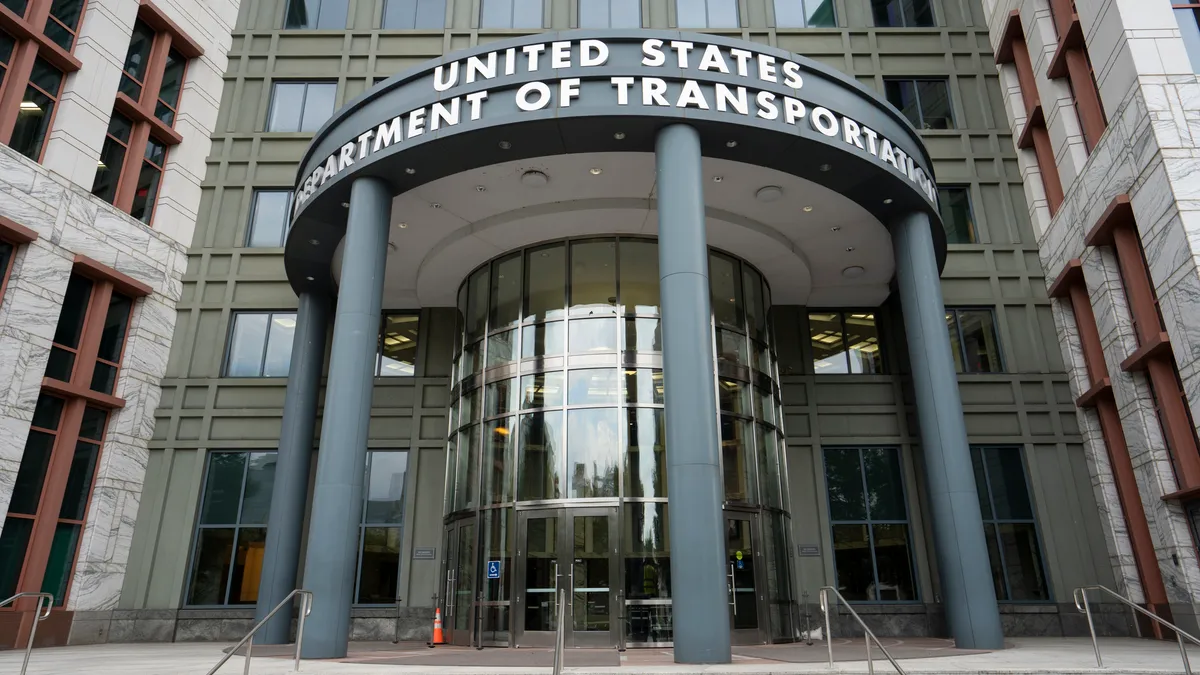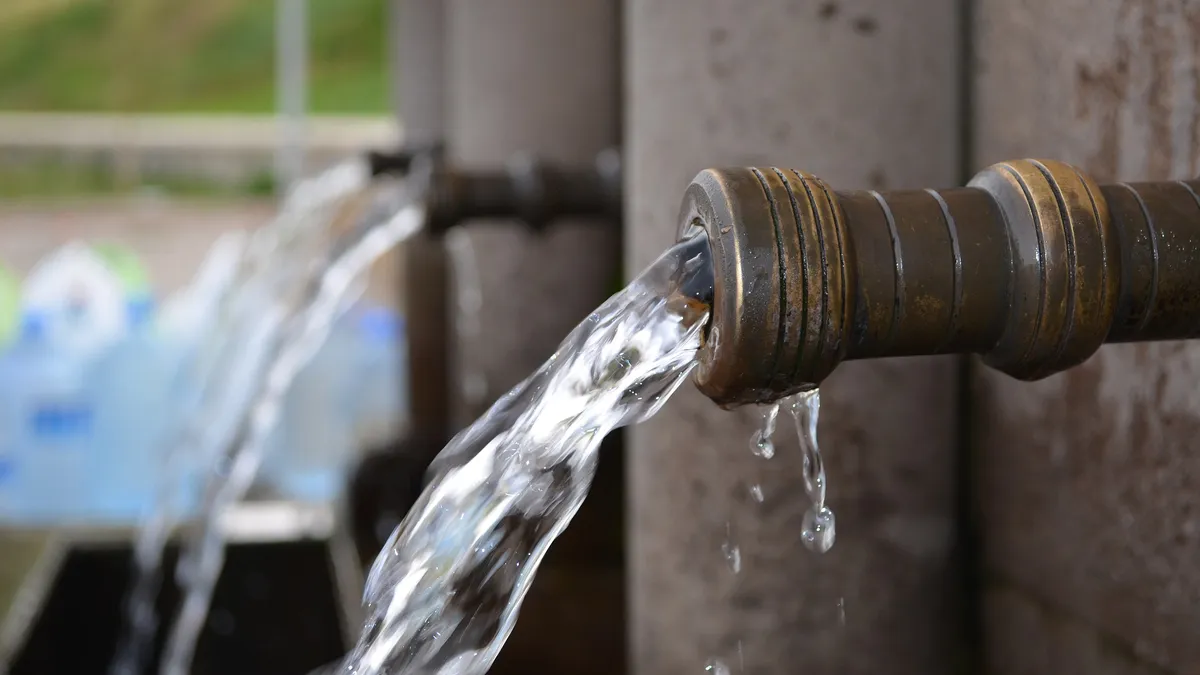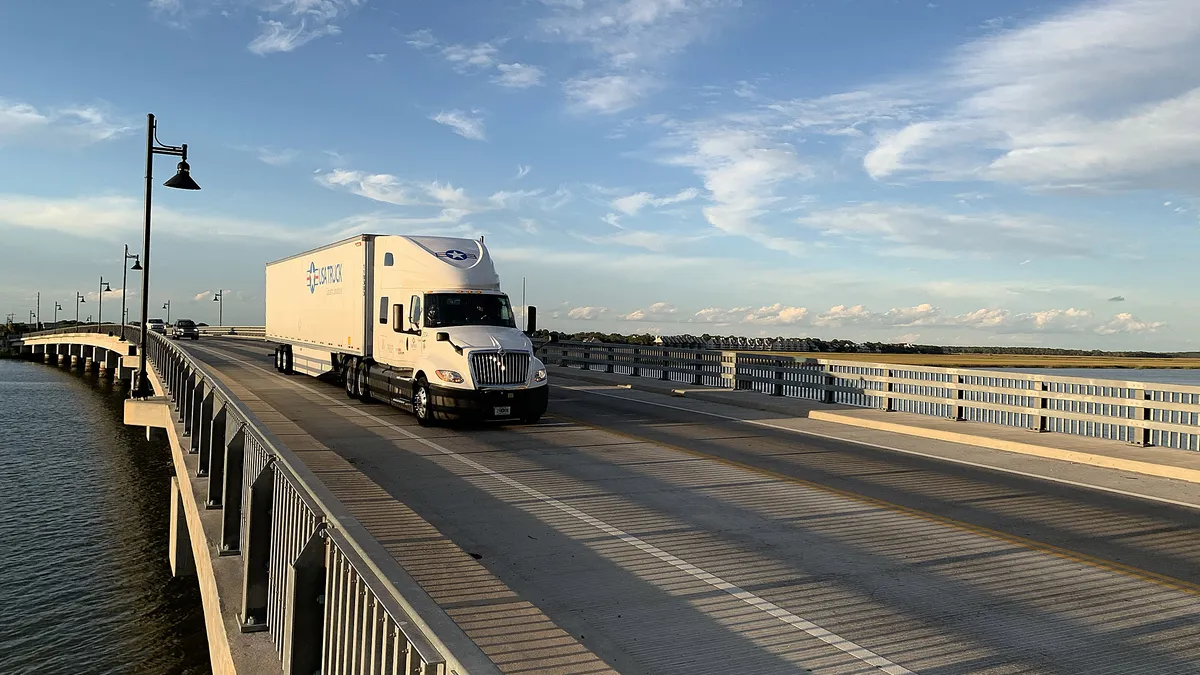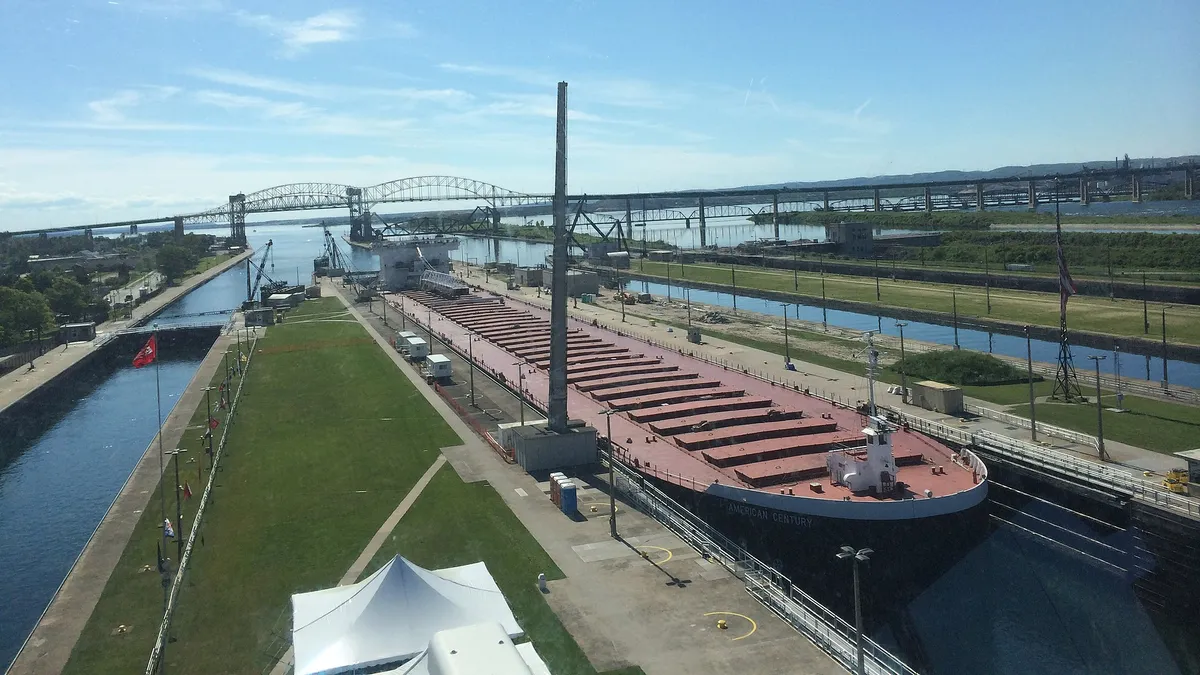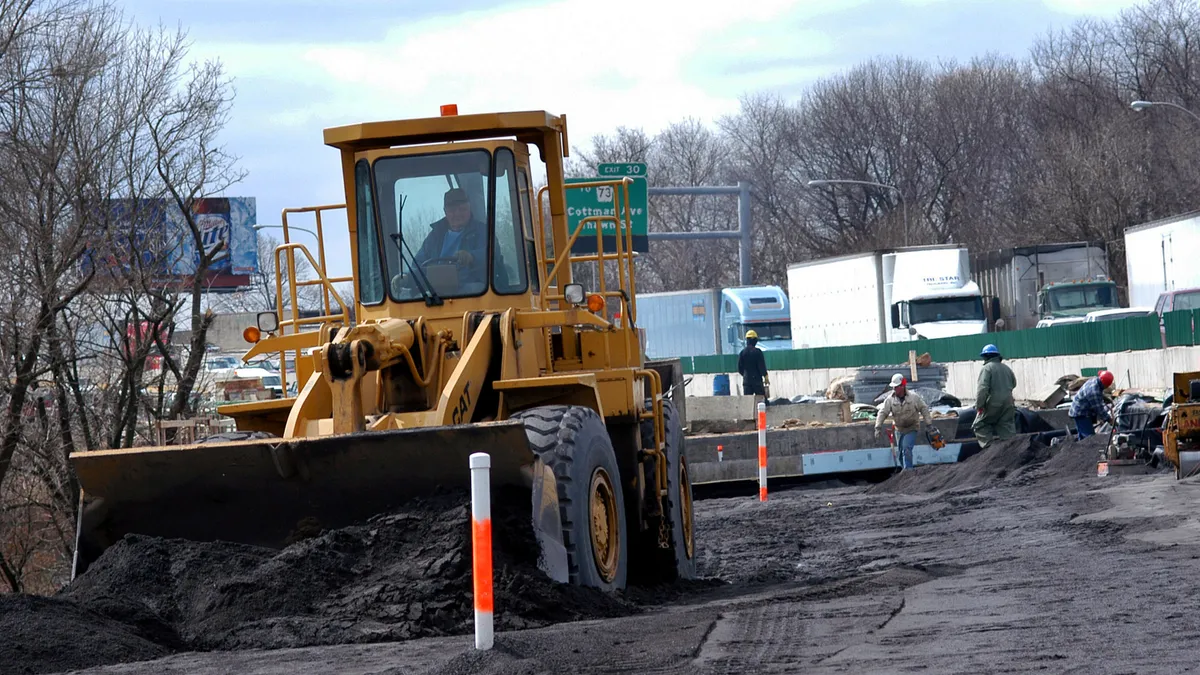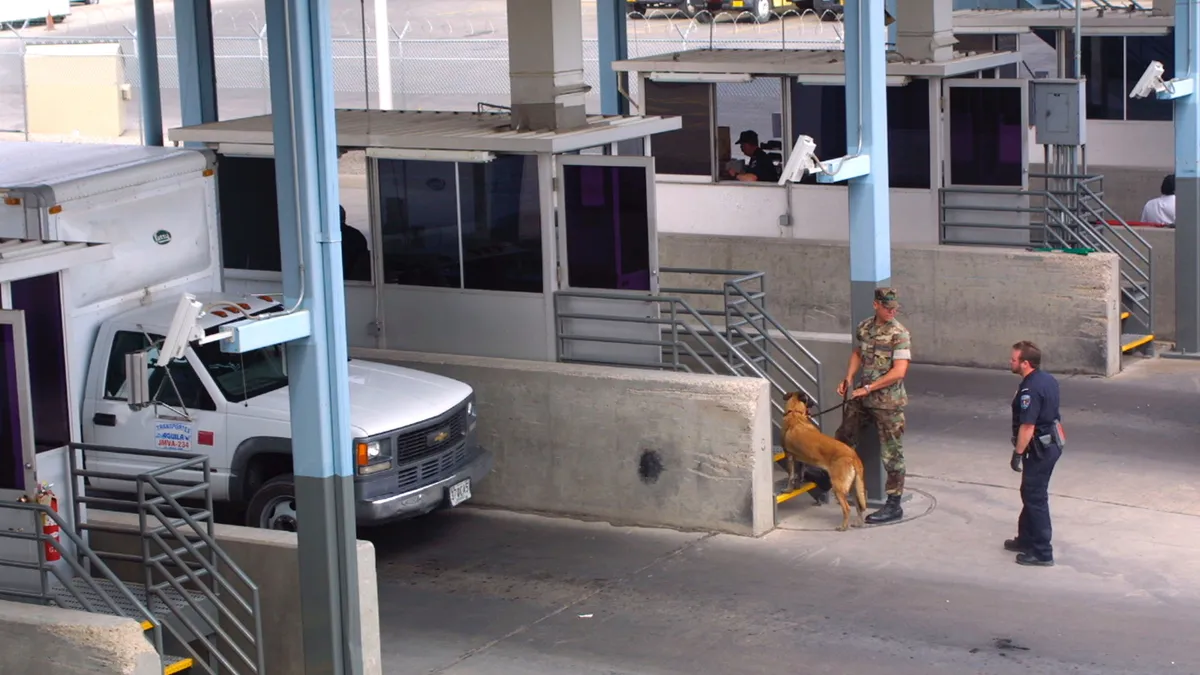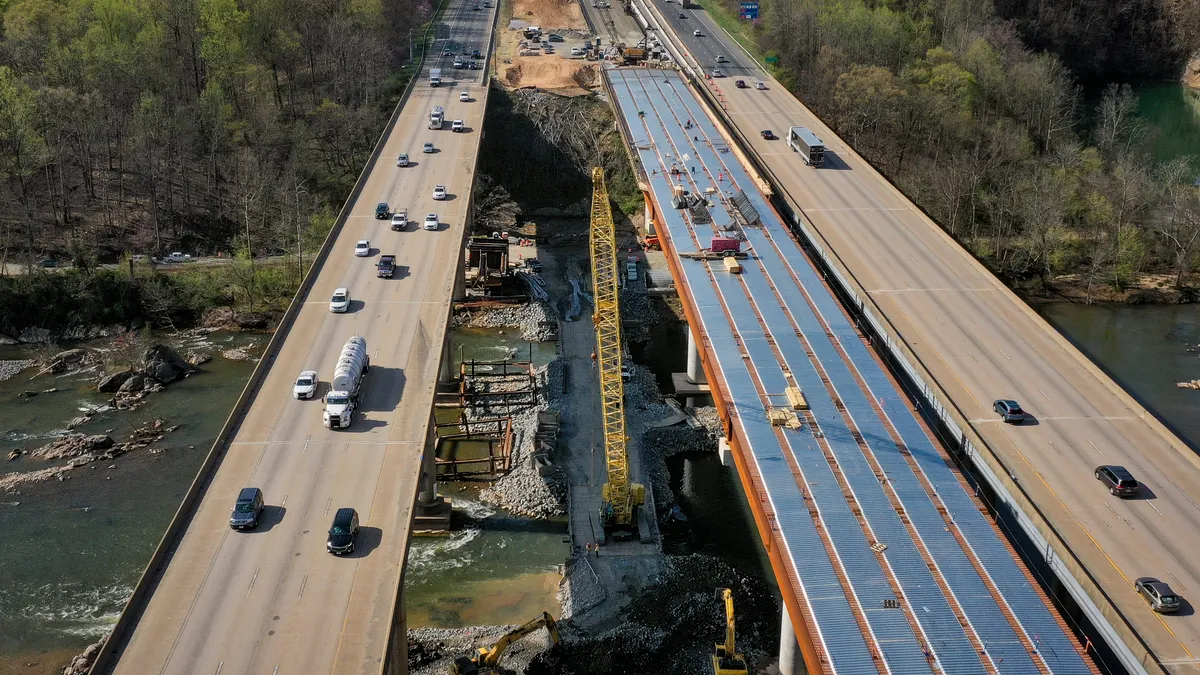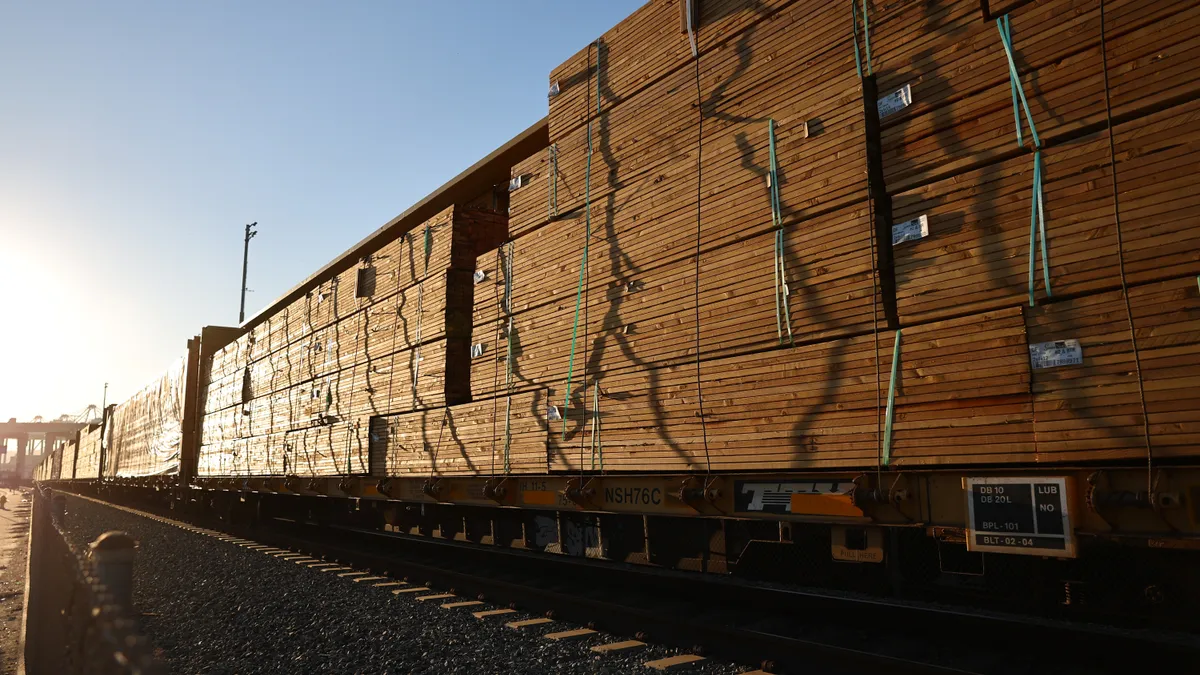Dive Brief:
- The Federal Highway Administration has awarded 10 states the first grants from the federal government’s Advanced Digital Construction Management Systems program, worth a combined $34 million, the agency announced on Nov. 16.
- The funding program, established under 2021’s $1.2 trillion bipartisan Infrastructure Investment and Jobs Act, is one aspect of FHWA’s Technology and Innovation Deployment Program, and exists under that broader umbrella as a source of cash for state departments of transportation. Grants will go through those DOTs to private construction firms that work on awarded jobs.
- Most of the grants this year focus on information-sharing, reduced reliance on paper and increased productivity and cost savings during project delivery, per the release. FHWA hopes these builds will serve as models for the adoption and deployment of digital construction technologies on a national scale.
Dive Insight:
The TIDP receives $550 million over five years, or $110 million annually, and funds various transportation and highway research endeavors. The program has existed since 2013, and was continued by the FAST Act in 2016 and the IIJA in 2021.
ADCMS, which pulls from the TIDP’s pot, has $85 million over the next five years, with the current $34 million allocated in FY 2022 and 2023. This means further aid is capped until FY 2024, at which point the program will offer a combined $17 million in grants for new projects each year.
The money is a decrease from previous estimates of $100 million, which the FHWA blamed on additional costs, such as with training and other peer programs.
“The ten projects selected for funding will help advance digital construction nationwide because they will serve as models for other state and local transportation agencies to adopt these best practices,” said Shailen Bhatt, Federal Highway Administrator.
The awarded builds are:
| Applicant Name | Project Descriptions | Award |
|---|---|---|
| Utah DOT | Utah transportation officials will use the funding to improve digital data collection tools in the field and training for its design personnel and project reviewers to use them for construction projects as early as 2024-2025. By expanding GIS and CMaps tools, Utah transportation officials will be able to streamline inspections in the field and provide predictable reports and assessments. | $5,000,000 |
| Illinois DOT | Illinois transportation officials will use the funding to establish a digital information-sharing network for future construction operations. This network would reduce the use of paper reports, provide greater efficiency of real-time data collection, allow 3D modeling and digital aerial surveys to improve accuracy and promote the use of information-sharing through cloud storage. Other benefits include reducing worker exposure to on-site surveys in hazardous work zones and environmentally sensitive areas and the ability to share data with local governments, state agencies and other organizations in the state. | $4,500,000 |
| Connecticut DOT | Connecticut transportation officials will use the funding to update the existing, cloud-based project delivery and document management system. These enhancements will eliminate the use of paper and move toward 3D models for work orders, logs, reports and correspondence while laying the foundation for improved digital management of future construction projects. The upgrades also will facilitate sharing of real-time information with federal, state agencies as well as contractors and others, minimizing delays and cost overruns. | $4,497,696 |
| Delaware DOT | Delaware transportation officials plan to use the funding to automate data collection processes that would reduce time spent on labor-intensive and routine activities at worksites while freeing up time for higher-skilled work. By harnessing accurate, real-time data about construction projects, agency inspections and quality control measures, these enhancements also would reduce workers’ exposure to hazardous worksite conditions and improve the safety of employees and the public traveling through work zones. Delaware DOT also plans to partner with the private sector in this effort. | $4,000,000 |
| California DOT | California will use the funding to facilitate better data management across the state’s project delivery cycle using a model successfully deployed by the United Kingdom National Highways Bureau. The project will reduce the need for paperwork and streamline processes. | $3,920,800 |
| Pennsylvania DOT | Pennsylvania plans to use its funding to develop an open data standard that would eliminate the need for paper plans and make it easier to exchange information digitally between design and construction teams. Training for Pennsylvania DOT personnel and contractors would ensure that transportation officials and those in related industries develop knowledge and skills on advanced technology and cutting-edge computer systems together. | $3,910,000 |
| Oklahoma DOT | Oklahoma transportation officials will use the funding to develop and implement a digital project delivery plan for managing assets, streamlining data storage and tracking progress throughout construction, including the maintenance and operations phases. Other enhancements include using GPS equipment and 3D models to make data collection faster and more efficient, including purchasing equipment for construction inspections, and training for construction and design staff. | $3,079,440 |
| Minnesota DOT | Minnesota transportation officials will use the funds to update asset and digital data management systems across the state’s construction cycle with the goal of improving decision-making, managing risks and employing mitigation strategies. Project funds will fill critical needs for hardware, software and workforce training, allowing easier access to information about preliminary designs and construction plans, more safeguards and quality assurance. | $2,160,000 |
| Iowa DOT | Iowa transportation officials will use the funds to improve digital construction standards and processes to capture, share and store information about state-owned utilities, bridges and pavement materials. In addition, project funds will help to streamline asset management by allowing easy access to data from digital models for use in preparing bids, achieve better project outcomes and reduce reliance on paper. When fully implemented, electronic information should help state officials make construction projects more efficient thereby reducing exposure for workers in work zones to live traffic, inattentive drivers and impaired drivers. | $1,501,200 |
| Washington DOT | Washington State transportation officials will use the funding to create automated processes aimed at collecting traffic control information for roadway signs at intersections and ADA curb ramps. These upgrades will eliminate the need for workers to be in hazardous traffic conditions for data collection purposes. It also will save time by reducing the need for paper reports and allow input of electronic data into 3D models to get to the public and other stakeholders faster. | $1,350,000 |
SOURCE: Federal Highway Administration



